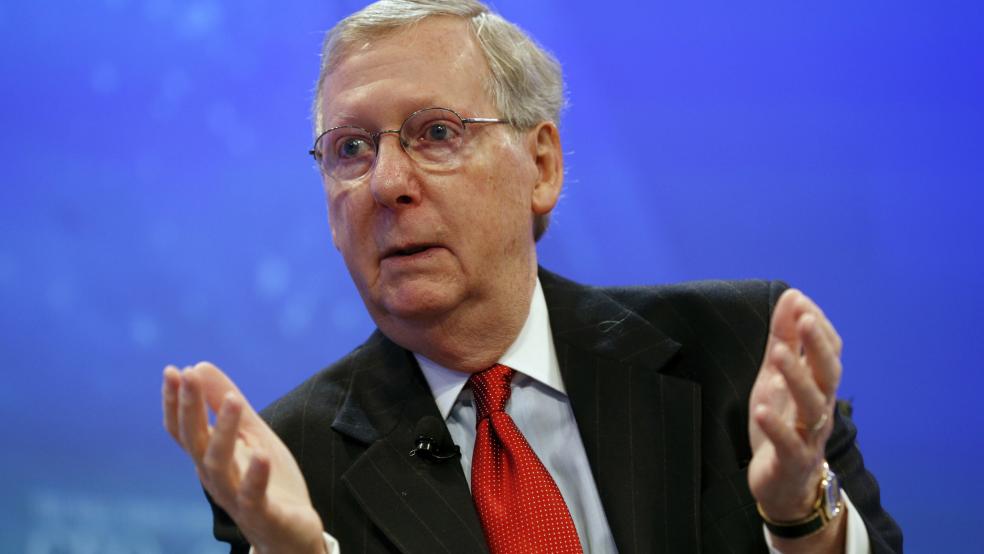What’s more daunting than creating a massive federal entitlement program? Unwinding it with the least amount of damage to people and providers, as Republicans are learning about the Affordable Care Act. After seven years of opposing the ACA, forever known as Obamacare, the GOP finds itself in a position to finally fulfill their promises to repeal it entirely and replace it with market-based reforms.
Over the past few weeks, since running the table in the 2016 election, Republicans on Capitol Hill began backing away from a firm commitment to “repeal and replace,” their mantra since the disastrous October 2013 rollout of the ACA exchanges. Murmurs of “repeal and delay” began swirling in Washington, even as now-president Donald Trump chose chief Obamacare opponent Tom Price to run Health and Human Services. Democrats began crowing “I told you so,” and started demanding that Republicans work with them to “fix’ the problems in the ACA.
Related: Could a Hybrid Obamacare Plan Bring the GOP and Dems Together?
The daunting scope of the challenge, both practically and politically, has my good friend Matt Lewis wondering whether the effort is worth trying. Writing at The Daily Beast, Matt suggests that Republicans should retreat from the “thankless task of fixing America’s health care system.” The problem, Matt argues, is that the central argument of Obamacare has already been adopted by both sides – that the responsibility for universal health insurance coverage falls on the federal government.
“Even President Donald Trump agrees with this promise of universal coverage,” Matt notes from Trump’s interview with The Washington Post. The ship has sailed on sending the issue back to the states or reforming the entire system on free-market grounds. The proliferation of alternatives makes the task a “Rubik’s Cube,” and “a fool’s errand that is almost guaranteed to backfire. Sometimes,” Matt concludes, “you have to punt.”
Unfortunately, Republicans don’t have that as a realistic option – either politically or practically. They have fought Obamacare in four successive national elections, winning three of four and sweeping the field in 2016 to return to single-party governance in Washington DC. Trump and almost every Republican who ran for the House and Senate explicitly cited Obamacare repeal as a top priority. Punting on repeal in favor of a few incremental changes would only deepen the hostility and suspicion that the populist-minded grassroots on the Right already have for Republican leadership. The potential backlash could cost the GOP a chance to gain a large Senate majority in 2018, or possibly even control of the House.
Related: There’s Less to Trump’s Obamacare Executive Order Than Some Suggest
Practically speaking, a punt won’t work because of the increasing instability in Obamacare exchanges. Democrats insisted that the ACA would deliver near-universal health insurance coverage and that 23 million Americans would get insurance through the exchanges by 2017. Instead, a new projection from the Congressional Budget Office estimates that only 10 million will pay premiums for coverage this year, and that number will only go up to 13 million after another decade. On top of that, the number of uninsured Americans will “remain around 27 million or 28 million” each year under the current system.
That makes it rather difficult to pin a failure to achieve universal coverage on a repeal of Obamacare and calls into question whether it’s a worthwhile goal. The Affordable Care Act has not just missed the mark on universal coverage, and the attempts to achieve it have made insurance coverage more unaffordable than ever thanks to massive premium increases (averaging 25 percent this year alone) and skyrocketing deductibles that make accessing insurance benefits all but impossible anyway.
Thus, the crisis has reached a pitch to where a choice to avoid governance no longer exists. Add in the flight of insurers from the exchanges and the collapse of the government-backed co-ops, and the acute need for action becomes undeniable, regardless of the difficulty. Failure to act is simply not an option any longer.
Fortunately, Republicans have already begun the process of working out an eventual replacement plan by introducing a few options this week. Senator Rand Paul offered his more libertarian approach on Wednesday, featuring a reliance on free-market innovation in coverage rather than mandates, interstate sales of policies, and broaden access to HSAs. His colleagues Bill Cassidy and Susan Collins offered a significantly different approach – giving each state the option to set up its own version of Obamacare, or choose a “free-market alternative.”
Related: The Sneaky Democratic Politics Behind the Scary New Obamacare Numbers
That approach still keeps in place some of the community-rating mandates while eliminating some of the other mandates on coverage, which makes it look like a bad system that has only been transferred to another level of government. Paul Ryan still has his “A Better Way” in the House, while Price will continue to work off his repeatedly offered legislation that closely resembles Ryan’s plan.
Some may see this multitude of options as evidence of chaos and division. Instead, it’s part of the necessary process of working through all the options to get to a consensus solution, one that may well include various parts of all these approaches. Until Republicans gained control of Congress and the White House and replacement became a real possibility, few were willing to do this work and risk the potential political backlash. Now, with not just the possibility but necessity of replacing a collapsing and failing experiment in a command economy, this work can begin in earnest.
And after this week, Republicans simply have no other choice. Trump’s executive order on Obamacare on Monday acted in the same manner as Hernando Cortes burning his boats at Veracruz, ensuring that the status quo would be untenable. Punting is no longer an option – and in truth, it never was.






